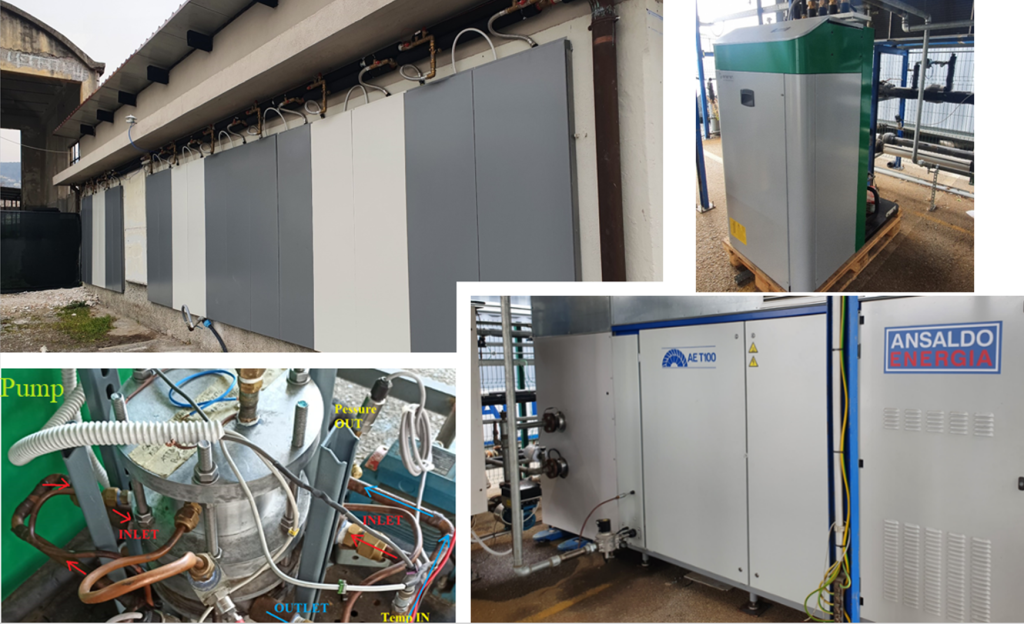As part of the ENVISION H2020 European project (Energy harVesting by Invisible Solar IntegratiON in building skins), innovative solar collectors have been installed. These panels differ from commercial ones solely in their specialized surface coatings, which have been designed to enhance the collectors’ absorption capacity in the Near-Infrared Radiation spectrum while balancing aesthetic appeal and efficiency.
Moreover, the implemented system integrates the ENVISION harvesting panels with a 100 kWe CHP-mGT, an innovative high-efficiency prototype heat pump, and two thermal energy storage units. The aim is to test the performance of the harvesting solutions and their integration with other devices within a smart polygeneration microgrid.
The installed integrated system features a double-ring configuration, enabling connection to both the hot and cold sides of the Campus DHN, thus allowing its operation to be tested in a real-world environment. Additionally, the system is connected to the Campus electrical grid. The District Heating Network (DHN) operates as a third-generation system, requiring a supply temperature of approximately 75–80°C, with a return temperature of around 50°C. The expected maximum temperature from the solar panels is about 45°C.
To meet the DHN’s temperature requirements, the integrated system is designed to connect the solar façade panels to the heat pump, which serves as a temperature booster. A low-temperature thermal energy storage unit is placed between the façade panel circuits and the heat pump to mitigate temperature fluctuations caused by variable solar availability.
The system also includes a 100 kWe / 160 kWth micro-gas turbine CHP unit, which supplies both electric and thermal energy. Additionally, a high-temperature thermal energy storage unit has been integrated to provide greater flexibility in managing both thermal and electrical demand. Thermal dissipators are also included to allow independent testing, regardless of DHN requirements, and to simulate different thermal demand profiles.

Scientific Coordinator: Prof. Loredana Magistri
